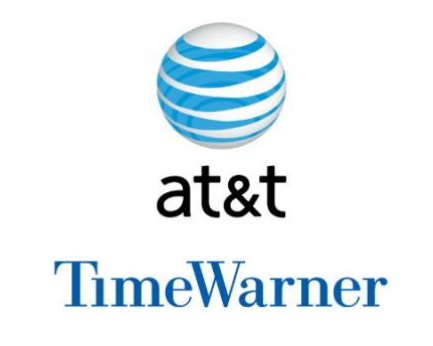Moffett: AT&T-TW Odds Still 50/50
The smarter way to stay on top of the multichannel video marketplace. Sign up below.
You are now subscribed
Your newsletter sign-up was successful

MoffettNathanson senior analyst Craig Moffet said after the initial announcement of the proposed AT&T/Time Warner deal that the odds on regulatory approval were a 50/50 coin toss. After interviewing five academics, five former FCC commissioners and/or bureau chiefs, Five EVPS of public affairs at telecom and media companies, three former FCC chief economists, and two senior Hill staffers, he said the odds remain the same.
Whether and how the FCC reviews the deal could be key to shifting those odds, said the experts, who mostly thought the commission would get a bite at the deal.
Moffett's interviews were "mostly" conducted before the Justice Department announced the suit against AT&T and DirecTV over negotiations for carriage, or in this case non-carriage, of Dodgers baseball on a regional sports net owned by Time Warner Cable, so Moffett concedes that suit has the risk of prejudicing the merger review and is "one more negative."
But he said they are no more certain about the prospects of the deal in Washington, which he puts at perhaps slightly more than even, but not much. "Armed with ammunition of the views of a who's who of those truly informed to make these kinds of judgments...we're still at a 50/50 probability."
But that 50/50 is an average. For example, the predictions varied wildly, from 35% confidence it would be approved to 90%, with most actually declining to quantify a prediction because they suggested it was nearly impossible to assign odds this early.
That is particularly the case since it is unclear whether the FCC will do an public interest review or simply advise Justice/ If Time Warner can get out from under one station license and some satellite licenses and not have to file the deal with the FCC, the FCC will only be advising, but the FCC will have to OK the pre-merger filing transfers.
Moffett said the experts interviewed said the question of FCC jurisdiction was a critical one, and perhaps THE critical one. Most thought the FCC would get to review it, perhaps by asserting its Sec. 706 authority to promote advanced telecommunications.
The smarter way to stay on top of the multichannel video marketplace. Sign up below.
Justice reviews mergers for antitrust violations, while the FCC gets to look deeper into whether a deal is in the public interest, whether or not it raises antitrust concerns sufficient to compel Justice to seek to condition the deal or sue to block it.
In addition, an FCC decision not to approve a deal is actually a decision to designate it for hearing before an Administrative Law Judge. That effectively kills a deal because that process is a lengthy one with low odds of success.
DOJ files suit to block a deal, which then can be defended in court. With a vertical deal--combination of programming and distribution assets--there is "little legal recourse for rejection," Moffett noted, so the odds of AT&T-Time Warner winning are much better, and Justice might even condition the deal rather that suing to block recognizing the long odds.
Contributing editor John Eggerton has been an editor and/or writer on media regulation, legislation and policy for over four decades, including covering the FCC, FTC, Congress, the major media trade associations, and the federal courts. In addition to Multichannel News and Broadcasting + Cable, his work has appeared in Radio World, TV Technology, TV Fax, This Week in Consumer Electronics, Variety and the Encyclopedia Britannica.

